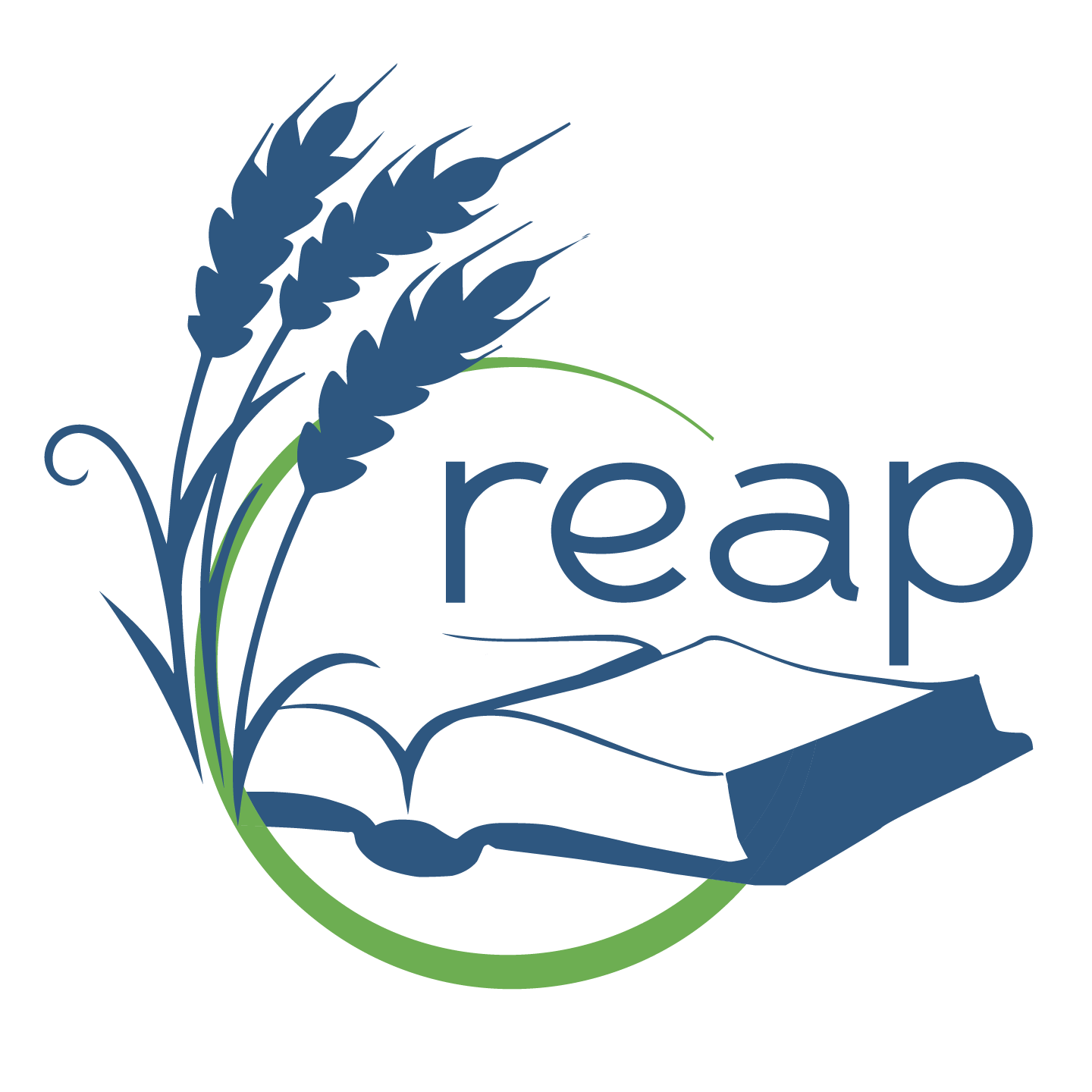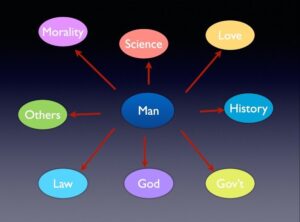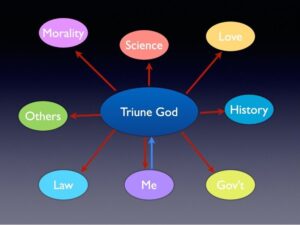 Last week I shared with readers a fresh mission and vision that God has laid on my heart related to Kingdom Education Ministries. This fresh mission is,
Last week I shared with readers a fresh mission and vision that God has laid on my heart related to Kingdom Education Ministries. This fresh mission is,
God has called Kingdom Education Ministries to RESTORE individuals, EMPOWER the home, ENGAGE the church and TRANSFORM schools through kingdom education.
I believe that education is a multi-faceted process of preparing future generations for life and eternity. This process is multi-faceted because it takes place in the home, church and school. The three-legged stool model is a foundational building block in a biblical philosophy of education.
Some may wonder why “individuals” have been included in this fresh mission statement. There is no doubt that the home, church and school are the three main institutions that shape the hearts and minds of children and youth. However, you cannot bring change in a home, church or school if you don’t begin by bringing change in individuals’ lives.
This is why there must be an effort to RESTORE individuals if we are going to see homes empowered, churches engaged and schools transformed. It is my desire to RESTORE individuals by establishing an understanding of kingdom education that will also deepen one’s knowledge of God.
Websters 1828 dictionary includes the following definitions for the word restore.
To return to a person, as a specific thing which he has lost, or which has been taken from him and unjustly detained.
To bring back or recover from lapse, degeneracy, declension or ruin to its former state.
To revive; to resuscitate; to bring back to life.
To return or bring back after absence.
Each of these definitions are applicable to KEM’s mission to RESTORE individuals through kingdom education. Individual Christians have lost some things and/or had some things taken from them that need to be restored. It is also true that many Christians need to be brought back to a former state that has degenerated over time. Thus Christians need to be resuscitated or revived to a former state that is currently absent in their lives.
The above definitions apply to all individuals, whether they are parents, pastors, church leaders, and/or educators. This is especially true when it comes to understanding God’s plan for educating future generations. Kingdom education only takes place when God reigns in the entire process of educating one’s children and youth. He reigns as King only when His Word is obeyed.
God’s Word contains several principles that guide us in knowing how God wants us to educate our children and youth. Every individual must know and obey these principles if God is to reign in his/her life as King.
The first thing that must be RESTORED in individuals’ lives is that parents have the primary responsibility for the education of children and youth. Several years ago I read the results of a study that Barna Group did. In this study, Barna found that 87% of Christian parents believed that they were responsible for the spiritual and moral development of their children. This appears to be a very positive finding.
However, Barna did not find that the vast majority of parents believed that they were responsible for the “education” of their children. The fact that Christian parents believed that they were only responsible for the spiritual formation of their children may indicate that they were operating from a dualistic worldview.
Thus, parents can believe that they are to focus on the spiritual aspects of their children’s lives but the “education” or the mental training of their children may not be their responsibility but that of the school. It is crucial that individuals are RESTORED to the reality that parents are primarily responsible for their children’s education.
Another area where individuals must be RESTORED is the place that Jesus holds in the education of children and youth. In Colossians, Paul declared that Jesus was the image of God and everything was created by and for Him. He went on to write that Jesus was the head of the body and the first born from the dead. Because of who Jesus is and what He did for mankind by dying on the cross, God declares that He, Jesus, must be preeminent in ALL things.
Once again, I believe that most Christians try to keep Christ central in their spiritual lives. However, is Christ at the center of the education we give our children and youth, especially at the school to which we send them? Individual Christians must be RESTORED to the reality that Jesus Christ is to be preeminent in all of life. As Webster defines the term, Jesus is to be superior in rank and dignity.
There is another area of life where individuals need RESTORATION. This aspect of life deals with how one views the future. One of the truths about life that has been lost or taken from most of us is the concept of eternity. Yes, we say we believe in life after death. However, do we live our everyday lives as if eternity is actually true?We live in an existential life where most peoples’ main focus is on the temporal. We live with defective near sightedness. This is especially true for parents. They have pretty clear vision for the first 5, 10 and maybe 20 years of their children’s lives. However, beyond this their vision for their children is quite blurry or even nonexistent.
In a booklet, 20/20 Vision, that I wrote a few years ago, I ask parents a very challenging question. Where do you want your child in 10,000 years? Whenever, I ask this question to parents, I get somewhat of a blank stare. Then they will hesitantly say, I guess heaven. I follow up by asking them what are they specifically doing to make sure that their children will be there in 10,000 years?
Here are some questions that each of us must answer.
- Is God King of your entire life?
- Do we believe and live out the biblical principle that states that parents are primarily responsible for the education of their children?
- Do we hold Jesus Christ preeminent in every area of our lives?
- Are we living everyday life with a conscious focus on eternity?
If we cannot answer each of these questions with a confident YES, then we may be individuals who need to be RESTORED!!

 It is hard to believe that another school year is here. It is even more difficult to try and comprehend what the year will be like. There is one thing for certain. It will be different from any other one we have ever had before.
It is hard to believe that another school year is here. It is even more difficult to try and comprehend what the year will be like. There is one thing for certain. It will be different from any other one we have ever had before.

 You might be asking yourself what does this question mean for my life and ministry? You might not even think about an individual having leaven. Recently, in my quiet time I found Jesus warning His disciples in Matthew 16:6 with these words.
You might be asking yourself what does this question mean for my life and ministry? You might not even think about an individual having leaven. Recently, in my quiet time I found Jesus warning His disciples in Matthew 16:6 with these words. July was a challenging time for me as I took some time off from writing my weekly blog. It was a month when I spent a great deal of time alone with the Lord and in His Word. During my quiet time, I began a study of the Old Testament prophets. Every day I poured over the books of the prophets from Isaiah to Malachi. It is challenging to read about what these men of God were called to do and the persecution that they encountered by being obedient to God’s call on their lives.
July was a challenging time for me as I took some time off from writing my weekly blog. It was a month when I spent a great deal of time alone with the Lord and in His Word. During my quiet time, I began a study of the Old Testament prophets. Every day I poured over the books of the prophets from Isaiah to Malachi. It is challenging to read about what these men of God were called to do and the persecution that they encountered by being obedient to God’s call on their lives.
Recent Comments